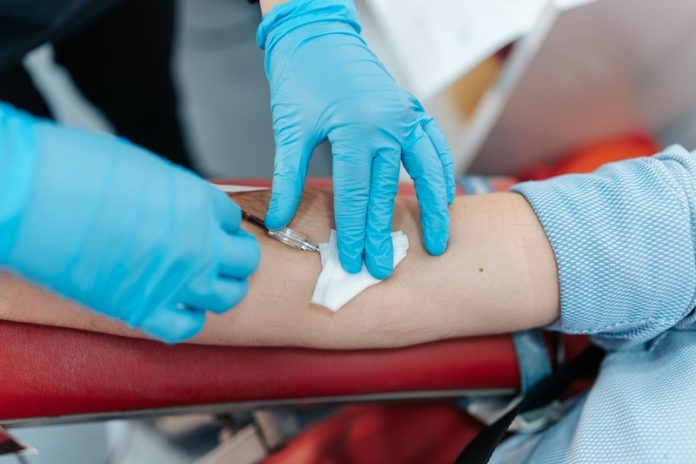
In the growing field of personalized medicine, scientists at Yale University have found promising evidence that a simple blood test could help detect early signs of lung cancer returning—years after a patient has completed treatment.
This test, known as an MRD (molecular residual disease) detector, looks for tiny traces of cancer-related molecules in the bloodstream.
The goal of this MRD test is to help doctors keep a close eye on patients after their main treatment has ended.
If signs of cancer appear in the blood, doctors could act quickly—either restarting treatment or giving stronger therapies to stop the cancer from coming back.
On the other hand, if no cancer is found, some patients might be able to avoid more treatment and the side effects that come with it.
“MRD detection is the future—allowing us to monitor patients in real-time,” said Dr. Roy Herbst, the study’s lead author and deputy director of Yale Cancer Center. “The data is strong, and we’re excited that our approach can now be included in future studies.”
The study, published in Nature Medicine, focused on people with a specific type of lung cancer called non-small cell lung cancer (NSCLC), which had mutations in a gene known as EGFR (epidermal growth factor receptor). These patients had taken part in a clinical trial called ADAURA, which tested the effectiveness of a targeted cancer drug called osimertinib.
In the ADAURA trial, patients who took osimertinib after surgery had a much better chance of staying cancer-free compared to those who took a placebo. Because of these strong results, osimertinib is now recommended as the standard treatment for up to three years after surgery in patients with EGFR-positive lung cancer.
But while the ADAURA study showed that the drug helped prevent cancer from coming back, it didn’t answer one important question: Are the patients cured, or is the cancer simply hiding and waiting to return?
That’s where MRD detection could make a big difference. By checking the blood for tiny bits of cancer DNA, doctors might be able to spot a recurrence before symptoms even appear. This could help them treat patients earlier and more effectively.
“MRD detection is a more personalized approach for patients with EGFR mutations,” said Herbst. “Now we’re starting to understand when patients begin to benefit most and how we can fine-tune their treatment.”
The study also pointed out that MRD testing could benefit patients in two key ways. First, it might help identify people at high risk of relapse who need more aggressive care. Second, it could spare low-risk patients from unnecessary medication and side effects, offering peace of mind and better quality of life.
Dr. Yi-Long Wu from the Guangdong Lung Cancer Institute in China co-authored the study, highlighting the global collaboration behind this research.
Review and Analysis
This study points to a future where cancer care is more closely tailored to each patient. While current treatments already help many people live longer, MRD testing could help doctors go one step further by showing who still has hidden cancer in their body—and who doesn’t.
The strength of this approach lies in its simplicity. Instead of waiting for a scan or symptoms to reveal a problem, doctors could use a regular blood test to quietly watch for signs of danger. This could lead to quicker treatment when needed and avoid unnecessary medication when it’s not.
Of course, more research is needed before MRD testing becomes standard in clinics. Scientists still need to prove that this approach truly improves outcomes and determine the best way to use it in day-to-day care. But this study is a strong first step toward a new kind of cancer care—one that’s smarter, more targeted, and better for patients.
If you care about lung health, please read studies about marijuana’s effects on lung health, and why some non-smokers get lung disease and some heavy smokers do not.
For more information about health, please see recent studies that olive oil may help you live longer, and vitamin D could help lower the risk of autoimmune diseases.
The research findings can be found in Nature Medicine.
Copyright © 2025 Knowridge Science Report. All rights reserved.



